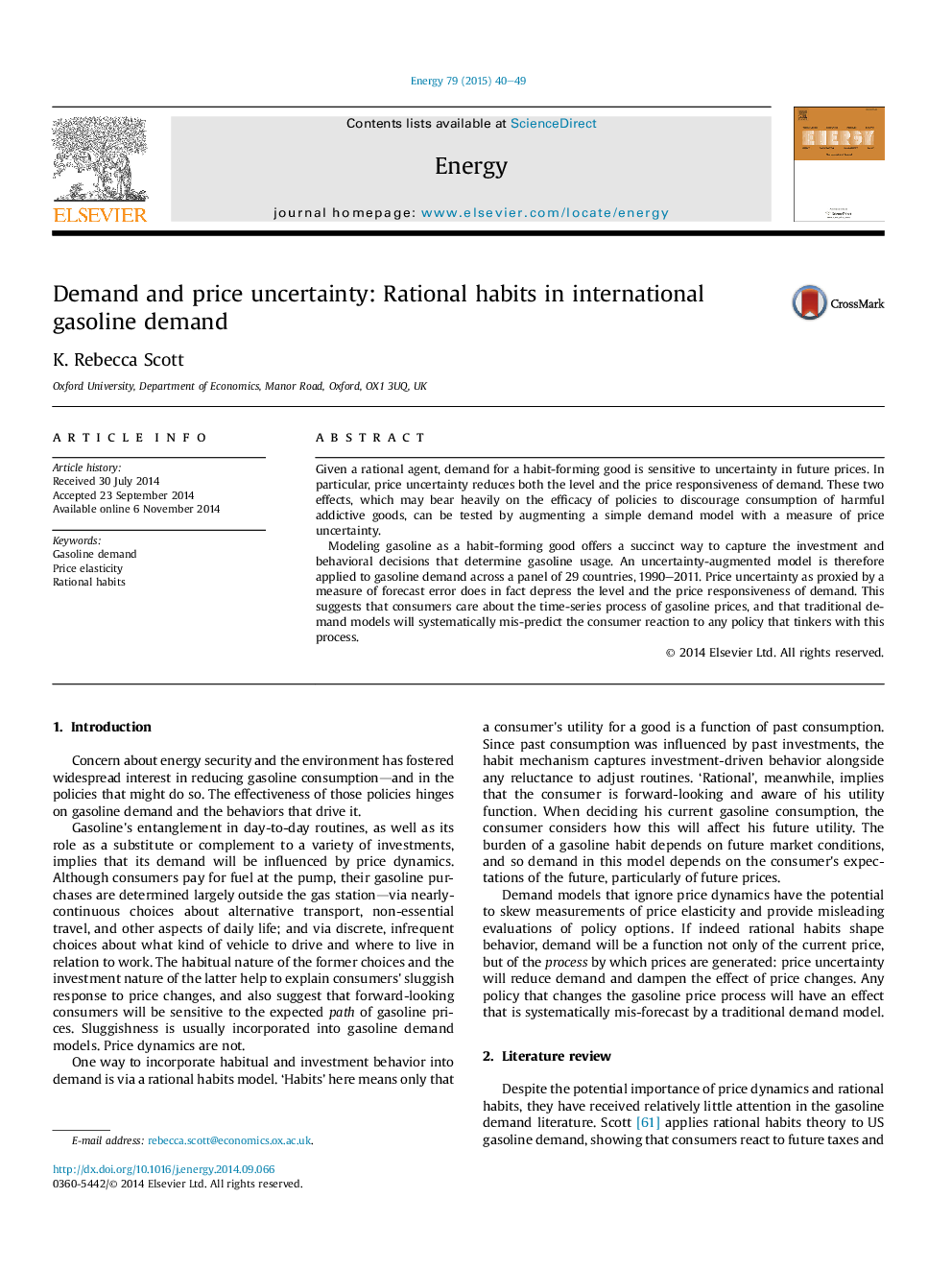| Article ID | Journal | Published Year | Pages | File Type |
|---|---|---|---|---|
| 8075767 | Energy | 2015 | 10 Pages |
Abstract
Modeling gasoline as a habit-forming good offers a succinct way to capture the investment and behavioral decisions that determine gasoline usage. An uncertainty-augmented model is therefore applied to gasoline demand across a panel of 29 countries, 1990-2011. Price uncertainty as proxied by a measure of forecast error does in fact depress the level and the price responsiveness of demand. This suggests that consumers care about the time-series process of gasoline prices, and that traditional demand models will systematically mis-predict the consumer reaction to any policy that tinkers with this process.
Keywords
Related Topics
Physical Sciences and Engineering
Energy
Energy (General)
Authors
K. Rebecca Scott,
